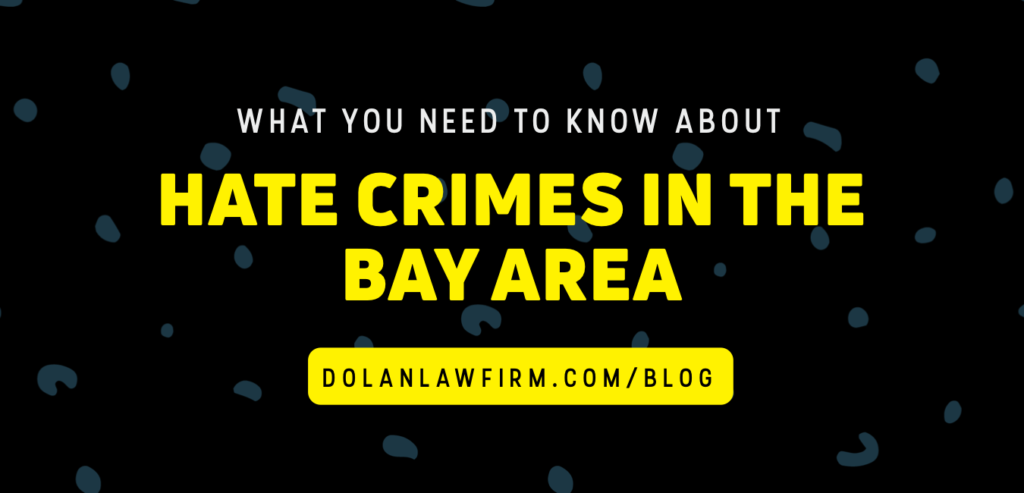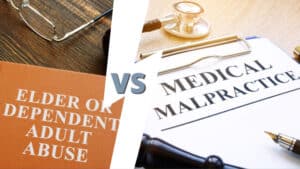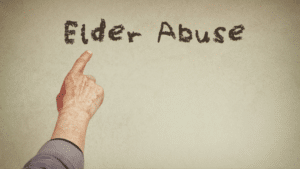Written By: Christopher B. Dolan and Mari Bandoma Callado
This week’s question comes from Lin S. in Oakland who asks:
Q: It’s been devastating to hear about the increase in anti-Asian hate incidents and violence against the Asian American and Pacific Islander community, including attacks on the elderly and the recent mass shooting in Atlanta. It does not seem like many of these incidents are being charged as a “hate crime.” What is a “hate crime” under the law? What should I do if I am a victim of a hate crime or if I witness a hate crime?
A: Thank you for this important concern shared by many. Dolan Law Firm is appalled by the increasing displays of violence and hate targeting Asian Americans and Pacific Islanders (AAPI), including the shootings in Atlanta which left eight dead, six of which were AAPI women, as well as the vicious attacks on elderly AAPI in the SF Bay Area over the last few weeks. Our deepest sympathies go out to the friends and family of the victims of these horrifying acts of violence. See our statement here.
Unfortunately, discrimination and violence against AAPI communities are not new. The United States has a long and well-documented history of discrimination and hate-based incidents against AAPI communities. Since the arrival of Chinese immigrants as laborers in the 1850’s, Asian Americans have always been the subject of racist violence. For example, the Chinese Exclusion Act in 1882 was enacted as Asian immigrants were viewed as threats, Japanese Americans were incarcerated during World War II, Chinese Americans faced persecution during the Cold War McCarthyism of the 1950s, and Asian Muslims and Sikh communities were targeted post-911. At the beginning of the COVID-19 pandemic, elected officials referred to the Coronavirus as the “Chinese virus” or “Kung-Flu,” fueling anti-Asian sentiment. While hate crimes decreased generally, anti-Asian hate incidents surged by nearly 150% in 2020. The targets of violence have disproportionately been older people and women, according to a report published by Stop AAPI Hate.
To answer your question, California Penal Code section 422.55 defines a “hate crime” as “a criminal act committed because of the victim’s actual or perceived disability, gender, nationality, race, or ethnicity, religion, sexual orientation, or association with a person or group with one or more of these actual or perceived characteristics.” Hate incidents, on the other hand, involve actions or behavior motivated by hate, but are legally protected by the First Amendment right to freedom of expression. This includes hate speech, which is often intended to intimidate or incite violence or discrimination against certain groups. The U.S. Constitution allows hate speech as long as it does not interfere with the civil rights of others. However, race-based or anti-LGBTQ slurs can be evidence of a hate crime when used during a commission of an underlying crime, such as threats to a person or property.
California Penal Code section 422.6 makes it a stand-alone crime to willfully interfere, by force or threat of violence, with someone else’s civil rights, or knowingly damage or destroy their property because of that person’s actual or perceived protected characteristic(s). There are also related civil remedies under the Ralph Act and Bane Act that can be enforced through the civil courts, as well as other available causes of action, theories of liability, and potential defendants to address the heinous attacks on individuals or groups based on race, national origin, and ethnic background in civil court.
If you are a victim or witness of a hate crime, first and foremost, dial 911 if it is an emergency and get yourself to safety. Second, get medical help if necessary. Third, document any and all details of the crime as soon as you can after the incident. It will be important to note the physical appearance of the perpetrator (e.g., age, height, weight, clothes, gender, race, and other distinguishing characteristics) and to make notes about what happened, including the exact words that were said (e.g., any racial or anti-LGBTQ slurs). If it is safe to do so, save potential evidence by taking photos and by getting the names, phone numbers, and emails of other victims and witnesses.
To report the incident, contact your local police department and/or the FBI to file a report. Make sure to get the responding officer’s name and badge number, as well as the case number. We also recommend urging the police officer to check the hate/bias-motivation or hate crime/incident box on the police report. It is also important to report the incident to organizations like Stop AAPI Hate, which has been tracking and responding to incidents of hate, violence, harassment, discrimination, etc. against AAPIs since March 2020.
If you feel you have been a victim of a hate crime, contact an attorney immediately to better understand your rights. Dolan Law Firm is committed to representing victims of hate crimes, harassment, and discrimination that are members of the AAPI community and other marginalized communities statewide.










